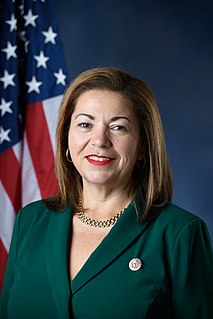A Quote by Ban Ki-moon
Saving our planet, lifting people out of poverty, advancing economic growth... these are one and the same fight. We must connect the dots between climate change, water scarcity, energy shortages, global health, food security and women's empowerment. Solutions to one problem must be solutions for all.
Quote Topics
Change
Environmental
Food
Health
Women
Advancing
Between
Climate
Climate Change
Connect
Dots
Economic
Economic Growth
Empowerment
Energy
Fight
Food Security
Global
Global Health
Growth
Lifting
Must
Our
Our Planet
Out
People
Planet
Poverty
Problem
Same
Saving
Scarcity
Security
Shortages
Solutions
Water
Related Quotes
The specter of climate change threatens worsening natural disasters, rapid urbanization, forced migration, and economic hardship for the most vulnerable. Despite significant global advances, inability to effectively address epidemics and health emergencies still prevail and continuously threaten global health security and economic development.





































